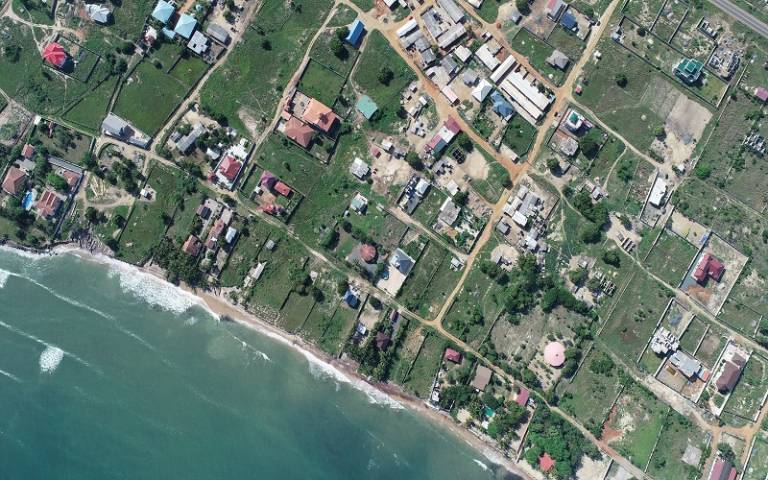Greening the Recovery in Ghana and Zambia
10 December 2020

Climate change is one of the most pressing global challenges of our time. According to the Intergovernmental Panel on Climate Change, action is needed to reduce global carbon emissions to net-zero by the middle of this century. Whilst Covid-19 has led to temporary reductions in emissions, these reductions are unlikely to be sustained as countries start to recover. Furthermore, the wider economic and social impacts of the pandemic risk slowing down or derailing action on climate change.
Against this background, our new project will explore opportunities for integrating climate change mitigation and adaptation actions into national economic recovery plans. The project is funded by the UKRI Global Challenges Research Fund and Newton Fund, through a funding call on the impacts of Covid-19 in low and middle income countries.
Our collaborative research programme brings together a team from UCL, the University of Ghana and the Zambia Institute for Policy Analysis and Research. In common with other countries, Ghana and Zambia have been affected significantly by the pandemic. Reported numbers of infections and deaths are low when compared to rates in many developed economies. However, the economic impacts have been severe. The IMF is projecting a 5% reduction in Zambian GDP in 2020 (GDP grew by 1.4% in 2019), and growth rate of just 0.9% in Ghana (down from 6.5% in 2019). In Ghana’s case, this would be the lowest growth rate since 1984. These reductions are partly due to lower global demand for the commodities they produce and export, such as oil and copper.
Of course, it is not just the headline level of growth that matters. The kind of growth that is achieved is just as important, and the extent to which it helps to improve sustainability and equity. We are therefore working with key stakeholders from the governments of Ghana and Zambia and other organisations to understand the effects of Covid-19 - and to develop detailed plans for an inclusive, low carbon recovery. Continuous engagement with these stakeholders is at the heart of the project, and will maximise the potential impacts on decision-making.
An important focus of our analysis is supporting revisions to national climate change plans. Both Ghana and Zambia submitted plans (known as Nationally Determined Contributions ) to the United Nations Framework Convention on Climate Change (UNFCCC) in 2016. These were required by the landmark Paris Agreement of 2015, and are now being revised.
Zambia and Ghana’s current levels of ambition in areas such as low carbon energy, land management and forestry are significant. But their most ambitious plans for reducing greenhouse gas emissions from a ‘business as usual’ trajectory are conditional. They would require significant international assistance, including finance, to be realised in practice. Our research will explore how both countries could go even further, and what policy options and investments could deliver them. This includes potential co-benefits in areas such as energy access, cleaner industries, green entrepreneurship, jobs and health
To achieve this, we are using a participatory scenario methodology to explore what the recovery might look like, to understand the implications for energy and land use, and to make recommendations to policy makers.
This starts with a series of stakeholder interviews to understand the current situation in Ghana and Zambia, the impacts of Covid-19, and what their priorities are for the future. These interviews will provide a basis for discussions about how the future might unfold – and what a clean, resilient recovery could look like. We will develop rich descriptions of possible future pathways, complemented by the use of open-source models to explore how energy systems and land use could develop and change.
Finally, these pathways and the modelling outputs will form the basis of policy recommendations. The scope will include policies to support energy access, job creation and support investment in low carbon technologies and nature based solutions. We will also provide training courses in person and online to help build the capacity of analysts and policy makers – and to ensure that the project has a longer term legacy.
The team:
- Simon Bawakyillenuo
- Aba Crentsil
- Jen Cronin
- Nick Hughes
- Yacob Mulugetta
- Mulima Nyambe-Mubanga
- Steve Pye
- Bernard Tembo
- Meron Tesfamichael
- Julia Tomei
- Jim Watson.
 Close
Close

